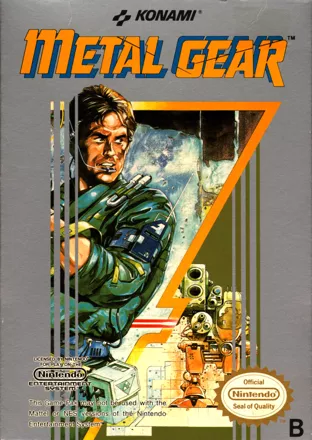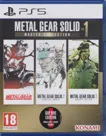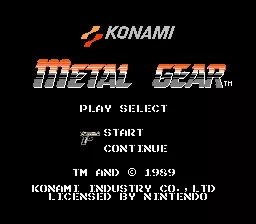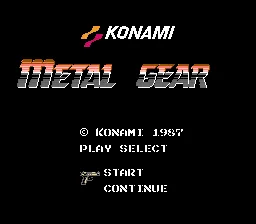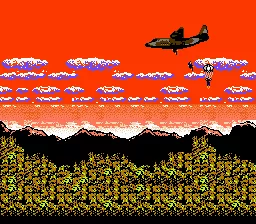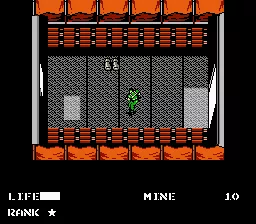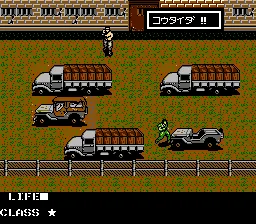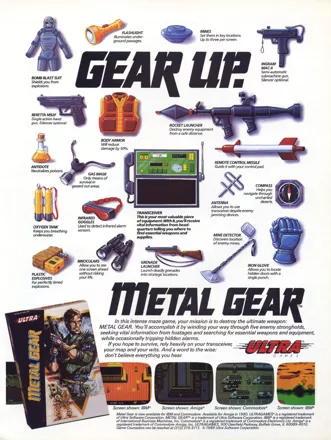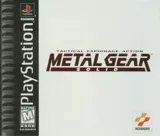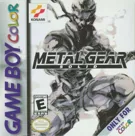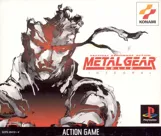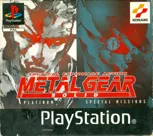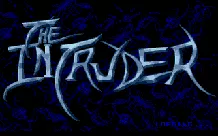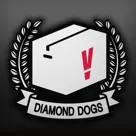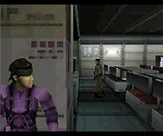Metal Gear
Description official description
Near the end of the 20th century, a small fortified nation named Outer Heaven (founded by a mysterious war hero whose name and identity are shrouded in secrecy) is threatening the nations of the "West" with the development of a new prototype weapon named Metal Gear, a walking tank which is capable of launching nuclear warheads from anywhere on the globe. As FOX-HOUND's (an elite black ops unit) newest recruit, going by the codename of Solid Snake, your mission is to infiltrate Outer Heaven and rescue your missing comrade, Grey Fox (who was captured after a failed infiltration), while gathering intelligence on Metal Gear.
In order to fulfill this objective, the player must collect various weapons and equipments (including keycards for further access into the fortress), while avoiding visual contact with the enemy. The player must also confront bosses in the form of Outer Heaven's elite mercenary force and rescue hostages hidden within the fortress in order to increase player rank, which gives Snake an extended life bar and increased storage capacity for replenishable items and ammo. The player can use a wireless transceiver to come in touch with their commanding officer, Big Boss, to learn more about their current mission objectives or contact one of the local resistance members operating covertly within the fortress to gain useful tips and insights.
Spellings
- メタルギア - Japanese spelling
Groups +
Screenshots
Promos
Credits (NES version)
4 People
| Lead Programming | |
| Assistant Programming | |
| Graphic Design | |
| Sound Effects |
Reviews
Critics
Average score: 67% (based on 17 ratings)
Players
Average score: 3.5 out of 5 (based on 71 ratings with 5 reviews)
Amazing title from Konami, tons of items, weapons & tons of fun killing action!
The Good
I got this game for my birthday after it was released and was locked in my room for a long time playing this game. It took me a little bit to get in to it but once I finally found a gun, I was hooked. The game if fairly large and very difficult to rush through.
It was one of the first games I can remember where the enemies actually had eyes. You had to hide and make sure you didn't blow your cover while you snuck around popping people off with silenced pistols. It was also the first game I ever knew of that gave you cigarettes too :) Even though they were worthless in the first game, later in the series they become handy.
There are lots of military weapons and items to aid you through your quest to destroy Metal Gear. Some pretty cool and original items such as a cardboard box! Yes, a cardboard box that you can hide under for some quick camo. Some weapons include some machine guns, remote control missile launchers and more...
Another cool little idea Konami threw in was a rank system. You advance in rank which increases your health capacity making you stronger.
The Bad
The loading time between switching from the game to the inventory screen was rather long. Not long as in minutes but all through this game, there is an annoying sequence you must perform at every locked door. Keycard by trial and error. There were a total of 8 keycards used to unlock doors and there was no indication as to what card was for what door. Therefore you had to go back and forth from inventory to game, from inventory to game until you got the right card. It was just annoying. And with a long loading time, it became a pain in the neck.
The sub machine gun in the game is just ridiculous. It is great because of its rapid fire but it automatically shoots in a "wave" pattern no matter what which wastes a lot of ammo.
The password system was nice because it wasn't a very long password but the font they used was like a military stencil. They should have just used a normal font. Sometimes It was difficult to distinguish between some characters.
The Bottom Line
Action packed, weapon packed, item packed military espionage fun from Konami/Ultra. Definitely worth a play and will always be considered a classic from the NES era.
DOS · by OlSkool_Gamer (88) · 2004
Addictive game play but requires guides
The Good
It's really addictive to go through this old game. Making maps like in the old days is fun to do (or look them up on the internet, I chose not to). Lots of variety in weapons and quests. You just want to see it through the end.
The Bad
The end, however, is only reachable by using the internet. In the old days internet was I guess synonym for Nintendo Power Magazine. Must have been frustrating in the 80s being stuck if you din't have this magazine, hate these kind of things.
I suggest to put up a statute for those who got to the end without any help!!
The Bottom Line
Fun old fashioned adventure shooter with some story (hard to play through).
NES · by Leon Tiggelman (23) · 2018
The Good
Metal Gear for the NES was a pretty ambitious game for its time. It introduced the world to one of the most loved heroes in gaming history, Solid Snake. It also put "Tactical Espionage Action" on the map. It also had a pretty engaging story once you figure out that...oh, don't worry, I won't spoil it for you!! Most of all, I had fun with the game.
The Bad
The fact that this port of Metal Gear was rushed and not 100% up to the standards of series creator, Hideo Kojima. There was an item that had no use at all, lots of dialogue was missing...it just wasn't fully complete. I also didn't like the fact that there were a couple points in the game where you wander around clueless as to where you have to go. This might have had to do with the game not being fully complete, but I found it to be one of its most annoying features.
The Bottom Line
I would describe this game kind of like NES Legend of Zelda, but with soldiers, guns, a jungle setting, attack dogs, a stealthy approach to the action (if that makes any sense), and bosses with weird names. Although not as polished and oft-remembered as Legend of Zelda, the game is pretty fun, and it's interesting when you start to really make progress. Unfortunately, the game is pretty short, but it is fun. I recommend it.
NES · by ceibant (11) · 2008
Trivia
Compilation
The MSX version of this game, together with Metal Gear 2: Solid Snake is featured on the extra disc of the Limited Edition of Metal Gear Solid 3: Subsistence.
Cover art
Michael Biehn from The Terminator film, though not authorized, was used as the model for the box illustration. You can find a side by side comparison here.
Manual
The in-game dialogue in the NES version of the first game was translated by Konami in Japan, whereas the NES version's instruction manual was written by a writer Konami had in their US division, which were in charge of packaging and distributing their games. Konami of Japan had almost no editorial supervision over what the writer wrote in his manuals. Because of this, the writer would try to make his manuals as "humorous" as possible by taking any liberty with the game's plot. In the manual, the reader is led to believe that a middle-eastern terrorist named Vermon CaTaffy (a play on the name of Muammar Gadaffi most likely), is the bad guy in the game and that Snake's commanding officer is named Commander South. However, no such names are featured in the game's dialogue. In the actual in-game plot, the main villain's identity is intentionally kept a secret to the player because of an eventual plot twist. The writer of the NES manual (intentionally or not) ignored this plot twist by making a made-up villain that's not featured within the game.
Snake's Revenge, the "American" sequel to Metal Gear also suffered from a similar localization treatment. Snake's Revenge continues the plot established in the first Metal Gear for the MSX and NES and even has an appearance by the actual Metal Gear mecha (which was replaced by a Supercomputer in the NES port of the first game). In the in-game plot of Snake's Revenge, the player is sent to neutralize a terrorist group from an undisclosed hostile nation who are developing a new Metal Gear prototype. In the manual, another made-up villain by the writer named Higharolla Kockamamie (a play on the name of Ayatollah Khomeini most likely), is described in the storyline. Snake's Revenge has even more banal attempts at humor, by describing one of the characters to be "related to Ginger from Gilligan's Island".
The writer of KoA's manuals did the same thing with several other Konami games, including The Adventures of Bayou Billy, Contra and Life Force, where liberties were taken with the manual for "humor" without any consideration of what the original designers intended.
Map
The game documentation included a map composed mainly of gameplay screenshots. Upon closer examination, you can tell the screenshots were taken from the original Japanese 8-bit Nes version, thanks to the Japanese character set and some slightly different graphics (such as trucks, etc.) which can cause some confusion in the game.
Milestone
The NES version of Metal Gear is listed in the 2008 Guinness World Records Gamer's Edition as the first game to fully utilize stealth as part of its gameplay.
Storyline differences
In the original Japanese storylines, every Metal Gear game pits you against U.S. Special Forces who have become addicted to war and who decide to start a few of their own. Perhaps because that wouldn't play very well to a domestic audience, Konami of America changed the storyline of the original NES Metal Gear game so that you were up against Third World terrorists. Snake's Revenge, continued this trend with its storyline.
Version differences
The original version of Metal Gear was released for a personal computer known as the MSX in Japan and Europe. The better-known Famicom (NES) version was released in Japan half a year later after the MSX version was released. Hideo Kojima, the game designer who worked on the MSX version, was not directly involved in the NES port and the game's was handled by a different Konami team at Tokyo. As a result, the developers made a few compromises from the original MSX game.
A different intro was added where Snake parachutes into a jungle (instead of the underwater insertion of the original), the areas were rearranged (and a new maze was added) and two of the bosses (the Hind D and the Metal Gear itself) were replaced by different bosses.
The NES version was also poorly reprogrammed and various subtle gameplay aspects were modified. The player's gunshot's range were extended, the jetpack soldiers on the rooftop lost their ability to fly, you cannot leave a door open and switch to the item/weapons screen, the Lv. 3 or "double exclamation mark" Alert mode (where the alarm isn't deactivated until you neutralize all reinforcements) was removed (the alarm can even be turned off by using the binoculars and the soldiers will return to their default positions) and even though the areas were arranged, due to the room oriented nature of the transceiver messages, the developers forgot to move some of the messages along with it (for example, if you call Schneider in the area in front of the room where the gas mask is contained, he will tell you the location of the mine detector due to the fact that the location was originally a minefield in the MSX version). You can even talk to Schneider after his supposed death.
Also, in the NES version, the player never gets to see and fight the actual Metal Gear.
Hideo Kojima was reportedly unhappy with the quality of the NES version.
Awards
- Electronic Gaming Monthly
- November 1997 (Issue 100) - ranked #35 (Best 100 Games of All Time) (NES version)
- Game Informer Magazine
- August 2001 (Issue 100) - voted #53 in the Top 100 Games of All Time poll
Information also contributed by Alan Chan, Depeche Mike, Johnny Undaunted, PCGamer77, Sciere, Snake Plissken, and U.J.1
Analytics
Upgrade to MobyPro to view research rankings!
Related Sites +
-
JUNKER HQ
This fansite is dedicated to the games produced and/or designed by Hideo Kojima and contains all kinds of trivia, artwork, plot summaries, discussion forums and more. -
Metal Gear Solid: The Unofficial Site (archived)
Archive of a fansite that contains information about the whole Metal Gear franchise, including galleries, interviews, downloadable content and discussion boards. Site offline since sept 2012. -
Video review of NES accessories (WARNING: Language) (archived)
Archived page from The Angry Video Game Nerd, James Rolfe, reviews some NES accessories and some associated games, including the Roll & Rocker and Metal Gear on NES.
Identifiers +
Contribute
Are you familiar with this game? Help document and preserve this entry in video game history! If your contribution is approved, you will earn points and be credited as a contributor.
Contributors to this Entry
Game added by Zovni.
Commodore 64 added by chirinea. NES added by Kartanym.
Additional contributors: Alaka, Johnny Undaunted, LepricahnsGold, —-, Caelestis, GTramp, robMSX.
Game added February 19, 2020. Last modified January 20, 2024.
